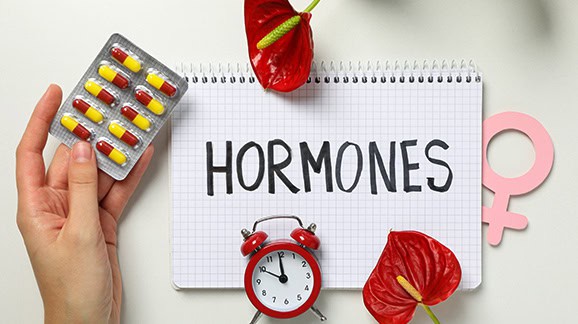What is the Role of Hormones in Fertility?

The role of hormones in fertility forms part and parcel of fertility and conception besides pregnancy. Almost all factors related to fertility are hormonally controlled and that is why any man or woman who intends to go for fertility treatment should purposely learn all about hormones. Awareness empowers and with hormones therefore determining fertility, it gives users an understanding of the issues which couples might face when they are planning on having kids.
Can Endocrinology and Hormones Affect Fertility?
Hormones are chemical substances made in the endocrine tissues of the body and participate in most of the body processes like growth metabolism, and reproduction. In areas of anatomy, sex hormones are involved in cycle, sperm production, conception and child-bearing. The major role of hormones in fertility therefore will concentrate on the mechanism of the balance and timing of hormones that trigger ovulation in women and sperm production in men.
Hormones That Control Female Fertility
In female fertility, several hormones come into play; they include the following: These hormones act in coordination with the regulation of the menstrual cycle and prepare the environment suitable for pregnancy.
- Follicle-stimulating hormone (FSH): FSH is released by the pituitary gland and it is a very useful hormone in the maturity of ova in the ovaries. In fact, during the first phase of the menstrual cycle, FSH levels are raised to initiate the growth of ovarian follicles. The FSH hormone is important in regulation cycles, and if one’s level is either high or low it means one cannot be pregnant or have an irregular cycle to enable ovulation. This is because many fertility treatments seek to modulate FSH so that ovulation can be achieved – which is important for anyone looking for the best fertility hospital in Hyderabad.
- Luteinising Hormone (LH): This hormone is also released by the pituitary gland, it has a complementary working relationship with FSH and is crucial to the process of releasing eggs. Halfway through the menstrual cycle, a spike of LH releases an egg from the ovary urgently. This process is called ovulation and this is the best time that conception can occur or pregnancy may likely take place. This means ovulation is affected and that fertility issues arise in cases where the LH surge is not seen or occurs only now and then.
- Oestrogen and Progesterone: Oestrogen and progesterone are two hormones that prepare the womb of female animals for pregnancy and provide for young fetuses. From the above cycle, it will be realised that progesterone levels rise after ovulation to ensure that the endometrium is developed to hold the embryo in case fertilisation of the egg happens. If these hormones are not in balance the uterine environment may not be favorable for the implantation and therefore early pregnancy may not go on. These hormones are checked when coming up with and implementing fertility treatment at the best fertility hospital in Hyderabad because they have a great influence on the state of the uterus.
- Anti-Müllerian Hormone (AMH): AMH is a hormone that can inform about the ovarian reserve – the amount of eggs in the woman’s ovaries. So while AMH is not part of the menstrual cycle it can be a useful marker for a woman’s reproductive age and help her to make decisions about fertility treatment. AMH below a certain threshold indicates low ovarian reserve and such patients may need a different treatment strategy for fertility.
Key Hormones Affecting Male Fertility
Also crucial to hormone balance is male fertility, because it alters sperm count and quality.
- Testosterone: Testosterone is a drug that stimulates the recovery of sperm production and the growth of the male secondary sexual characteristics. Low levels of testosterone also bring about low sperm count and poor quality which will affect fertility status. Problems of hormonal concentrations in male testosterone are normally solved in the framework of the fertility management of males because the level of testosterone directly influences the quality of sperm.
- Follicle-stimulating hormone (FSH) and Luteinising Hormone (LH): Like in the female reproduction system, FSH and LH are also involved in male reproduction fertility. In men LH encourages the production of FSH to stimulate the testes for sperm production and for the general production of testosterone. Cohesion of these hormones affects sperm production therefore making conception hard because sperm count or quality may be low. While engaging the services of specialists at the best fertility hospital in Hyderabad, some male patients can be prescribed special hormones that might have been recommended for unique situations.
- Hormonal Imbalance and Infertility: Gonadal dysfunctions, which are hormonal problems, are often the main factors causing infertility in both males and females. Stress, lifestyle, diet, age and some diseases, all these factors can upset the hormone balance and, therefore, fertility. Various health complications such as PCOS, thyroid disease, and hyperprolactinemia are habitually either a cause or effect of hormonal disturbances that impact menstrual cycles and sperm quality.
How Fertility Treatments Work to Tackle Hormonal Problems
Many fertility treatments are aimed to either complement or activate native bodily chemical reactions so that conception becomes more possible. Depending on the particular hormonal imbalance at work, all the way from medications to more complex operations may be used.
- Medications to Induce Ovulation: If a woman’s cycles are not typical because of hormonal problems, then fertility drugs like clomiphene citrate or letrozole can be taken to induce ovulation. These drugs are used because they induce the secretion of FSH and LH so that an egg can fully develop.
- Intrauterine Insemination (IUI): IUI involves having sperm deposited to the uterus commonly during the wife’s ovulation period due to hormonal injections. PTSD is useful for patients with minor hormonal shifts and is one of the standard prescriptions that patients are given in fertility hospitals.
- In Vitro Fertilisation (IVF): For more complicated hormonal problems, IVF provides a completely controlled setting for fertilisation. DURING IVF, drugs are administered to the patient that helps to induce the release of multiple eggs that are then collected and fertilised outside the woman’s body.
- Hormone Replacement Therapy: Historically, hormone replacement therapy was employed only in situations when the hormonal deficit or its fluctuation was notable. In this treatment, hormones like oestrogen, progesterone or testosterone are added to the body to ensure that the right amount is present in the body to support conception.
- Lifestyle and Dietary Adjustments: Although there are cases where hormonal imbalances can be treated by changing some lifestyles and diets. Mental and environmental stress, proper diet and weight also influence hormone levels and fertility in one way or the other.
Felicity: Best Fertility Hospital in Hyderabad
The important role of hormones in fertility cannot be overemphasised for these are the chemical messengers which create harmony in various activities required for conception and pregnancy. Anyone experiencing fertility issues can benefit from knowing how hormones impact fertility as this gives people an insight towards possible treatments for fertility issues. For any condition that interferes with ovulation, sperm count or hormonal regulation such as polycystic ovary syndrome or PCOS, fertility treatments seek to bring order by providing a suitable environment for conception to occur.
If you want help with fertility and researching the more sophisticated treatments available, it is advisable to meet with a specialist facility such as Felicity IVF- the best fertility hospital in Hyderabad. With our team of experienced specialists and the service of the numerous latest technologies, which we are proud of, we are ready to stay by your side every step of the way so that you can feel at ease. At Felicity IVF, the dream of being a parent is the focus and you are not alone in the process.
FAQS
Hormones play a vital role in fertility treatment by regulating ovulation and sperm production. Balancing hormones like FSH, LH, and testosterone optimises fertility, making treatment at the best fertility hospital in Hyderabad more effective.
Hormones like FSH, LH, oestrogen, and testosterone are essential for fertility. Imbalances can disrupt ovulation, sperm quality, and uterine health, impacting fertility. Fertility treatments at Felicity IVF address these specific hormonal issues.
Medications, IUI, IVF, and hormone replacement therapy are common treatments for hormonal imbalances. The best fertility hospital in Hyderabad, like Felicity IVF, tailors these treatments to optimise hormone levels for conception.
